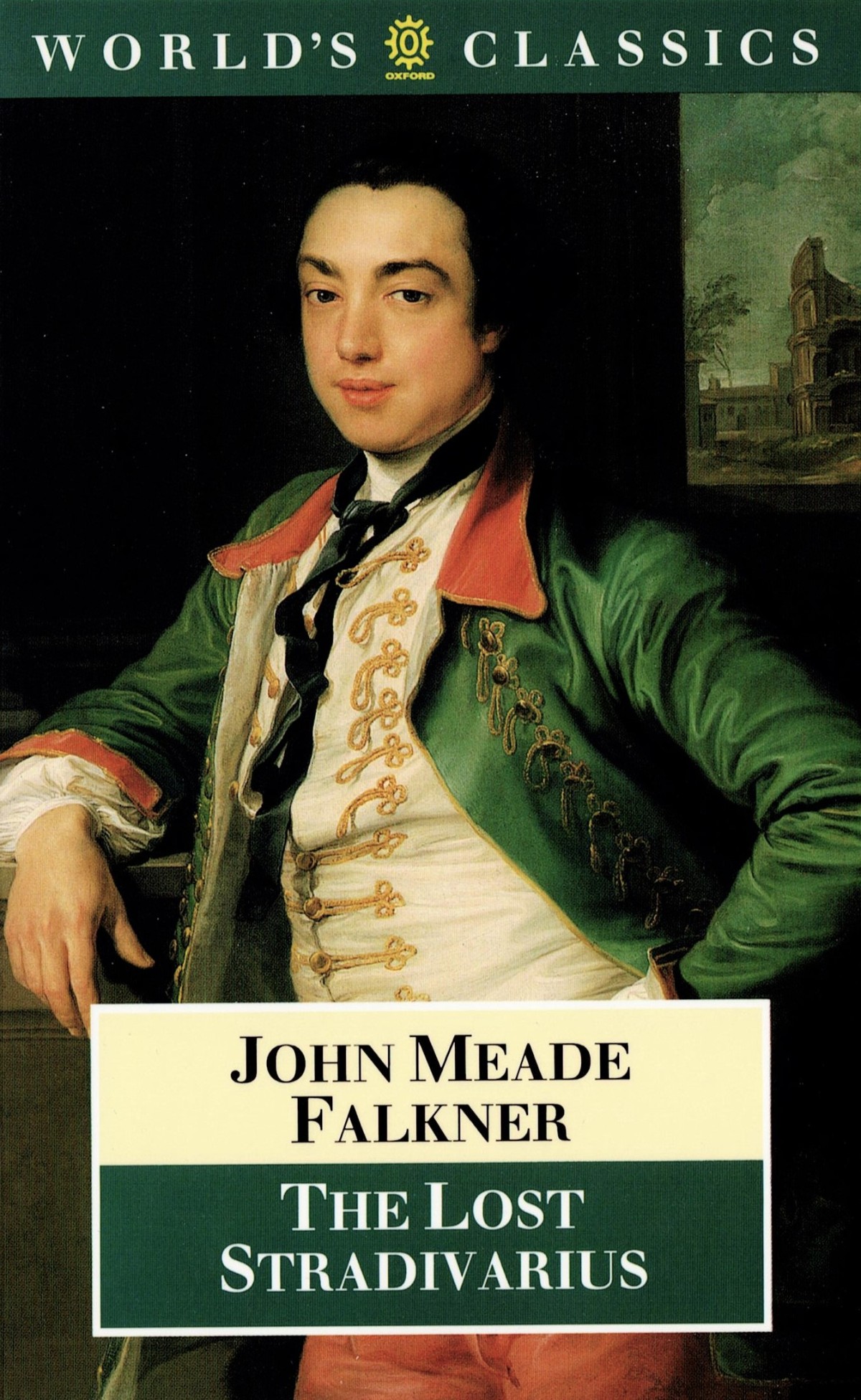
Grove Koger
May 8 is the birthday of John Meade Falkner, who was born on this day in the village of Manningford Bruce, Wiltshire, England, in 1858.
Falkner (whom you see below as a young man) was a study in contrasts: a prominent businessman and accomplished writer, he worked for a quarter of a century for the armaments firm Armstrong Whitworth, eventually becoming its chairman, and collected rare books. He received decorations from the Italian, Japanese, and Turkish governments in recognition of his negotiations on behalf of Armstrong Whitworth, and, given his abiding interest in medieval history,spent a great deal of time when he was in Rome in the Vatican Library, resulting in the Pope’s presenting him with a gold medal honoring distinguished scholars. Although he never took Holy Communion, he held an honorary position at Durham Cathedral.

Some of these contrasts (or were they more serious contradictions?) may underlie his sinister first novel, The Lost Stradivarius, which was published by William Blackwood in 1895. The date was, tellingly enough, just five years after the publication of the first version of Oscar Wilde’s novel The Picture of Dorian Gray, which can be read as both a celebration of aestheticism—routinely identified with the slogan of “art for art’s sake”—and a warning of its dangers. Even more tellingly, 1895 was also the same year that Wilde himself was convicted for “gross indecency” (that is, homosexuality, which was illegal in the United Kingdom until 1967) in a widely publicized trial.
Appropriately enough, Falkner’s own novel is written in the form of two accounts of the fall of John Maltravers, one by Maltravers’ sister, Sophia, and the other by Malttravers’ close friend, William Gaskell. Maltravers’ fall comes in stages, beginning with his discovery and near-obsession with a piece of music, “l’Areopagita,” apparently written in Naples in 1744. Initially, he tries out the piece on his violin, but soon he and pianist Gaskell begin playing the piece together, again and again. But, as they do so, they can’t help noticing that, on every occasion, an invisible someone takes his seat on a wicker chair, which creaks audibly. In time, Maltravers is led to discover an extraordinarily fine Stradivarius violin in a hidden cupboard.
Subsequently, we witness the slow but agonizingly sure degeneration of Maltravers, who is unable and/or unwilling to resist the evil allure of the music, the violin, and all that they represent. The scene shifts from Oxford to Naples (seen below in an atmospheric painting by Oswald Achenbach), from staid England to the sunny South and all the temptations that it represents.

I’ve read that Wilde’s arrest and trial resulted in great numbers of nervous Englishmen crowding the boat-trains to the Continent. Does Falkner’s novel dramatize the same impulse?
As Mark Valentine writes in his introduction to the Tartarus Press edition of the novel, “The Lost Stradivarius is the work of a man who recognised the vital attraction of a fierce, freethinking and forbidden faith, but was appreciative too of the stricter, steadier qualities of the old-established order… [T]he author may be on the side of the angels, but perhaps some of them are fallen.”
If you’d like to know more about Falkner, there are two biographies: John Meade Falkner, 1858-1932: A Paradoxical Life, by Kenneth Warren (The Edin Mellen Press, 1995); and John Meade Falkner: Abnormal Romantic, by Richard Davenport-Hines (Roxburghe Club, 2018). There’s also a John Meade Falkner Society, which you can visit here.

If you’d like to subscribe to World Enough, enter your email address below:
And if you’ve enjoyed today’s post, please share!
